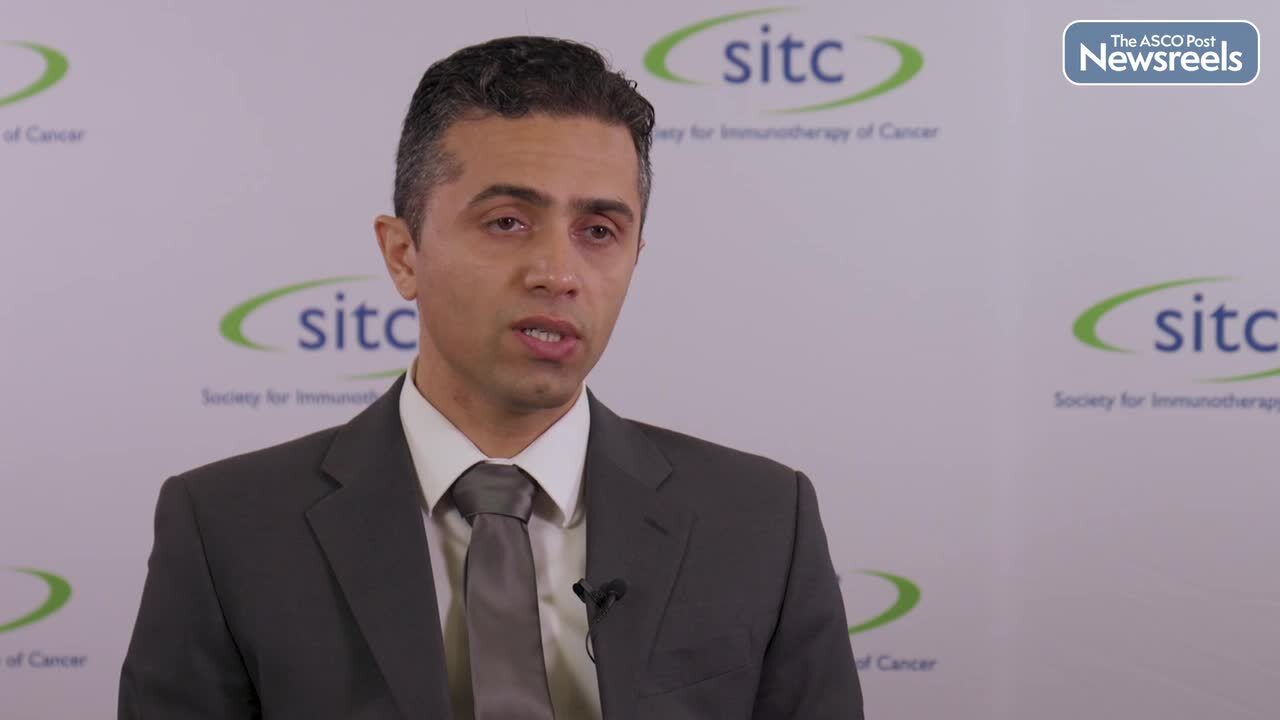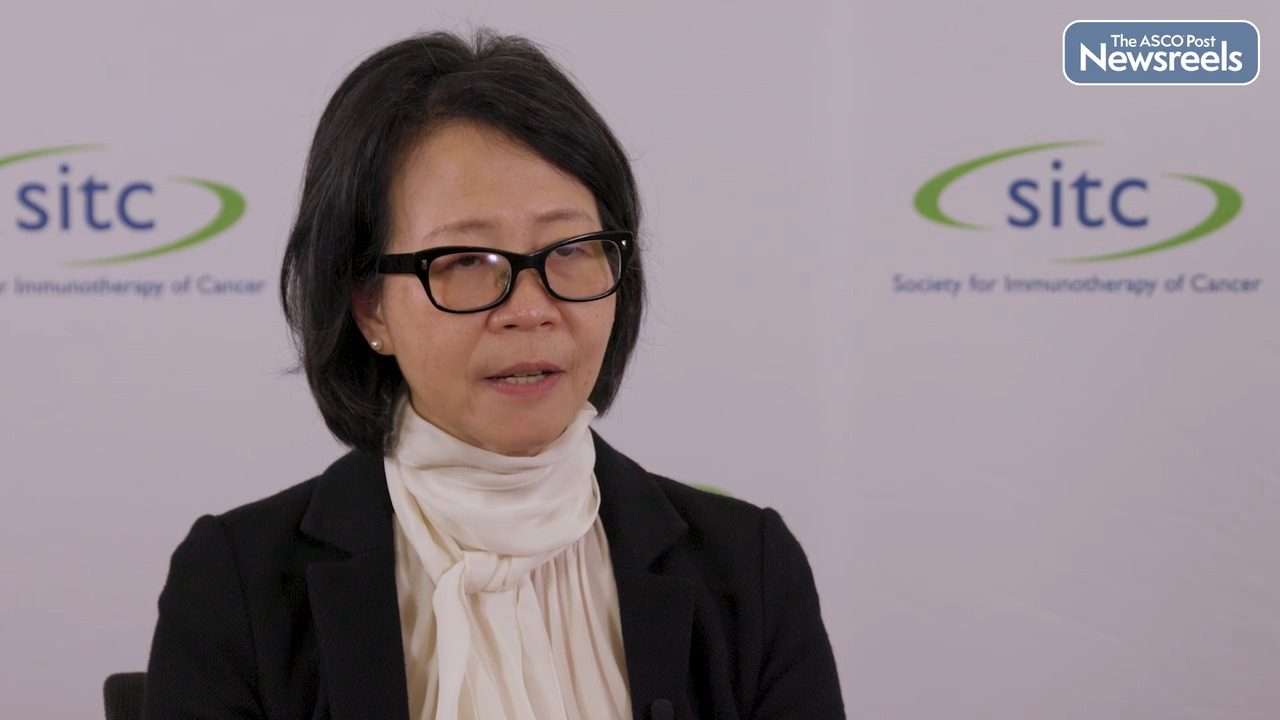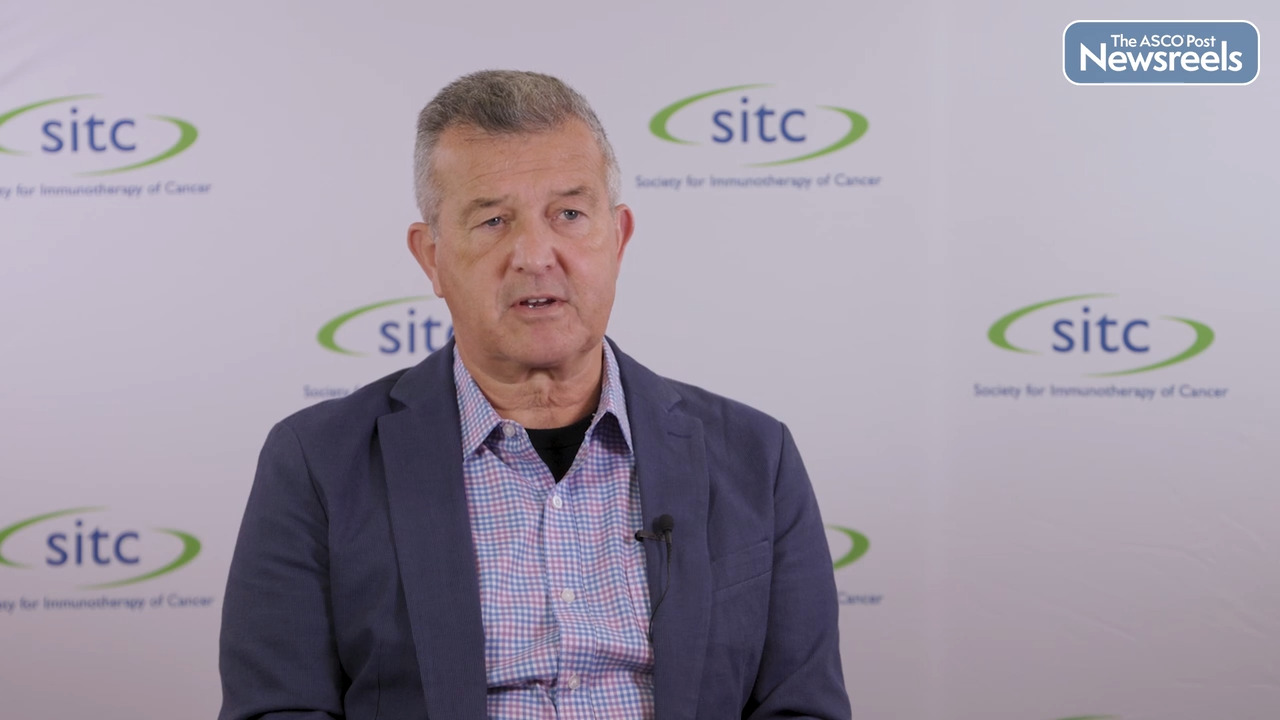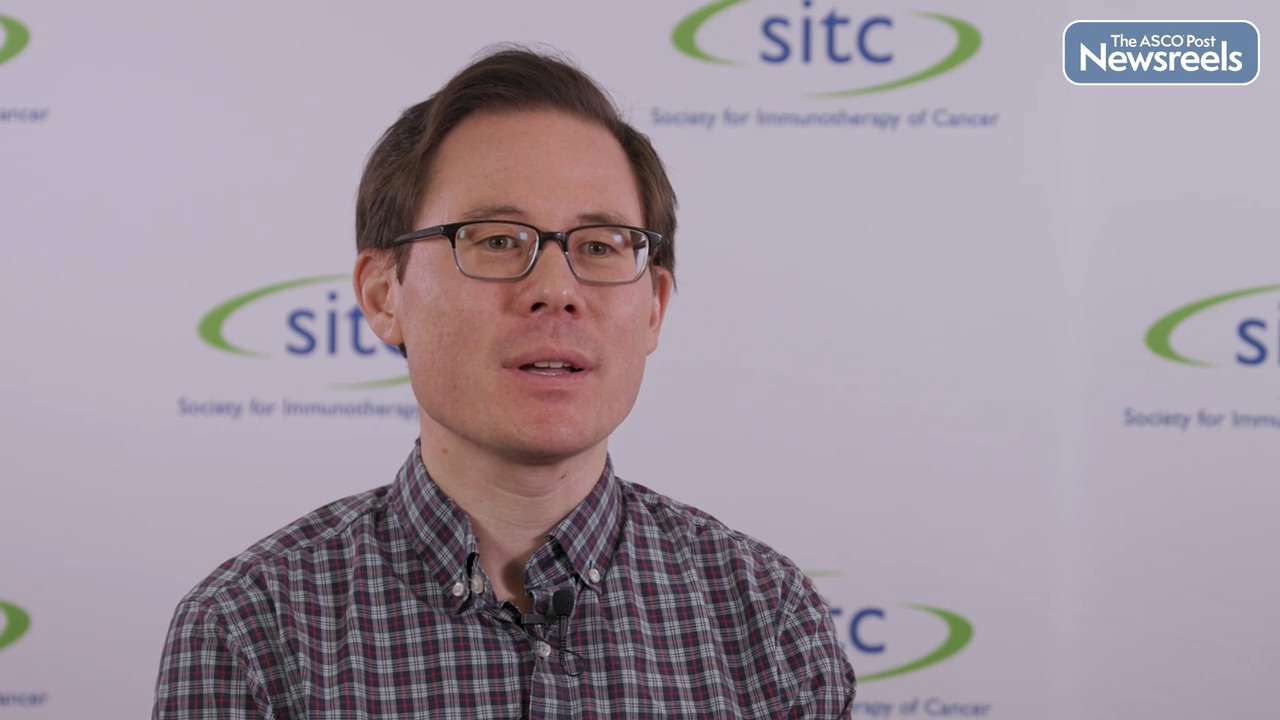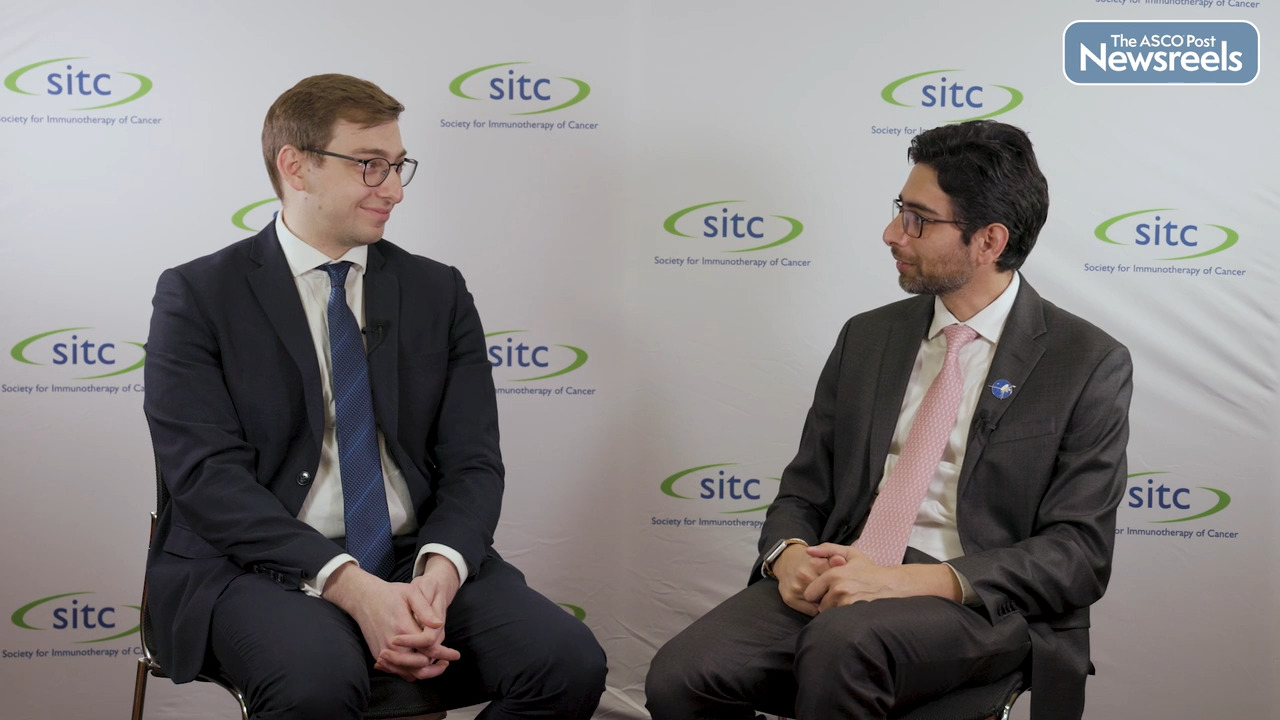Transcript
Disclaimer: This video transcript has not been proofread or edited and may contain errors.
The purpose of this research is to get to what's most important in cancer therapy, which is to specifically target cancer cells and spare normal cells. It turns out that the immune system has a way to do this and that's through the T-cell receptor recognition of mutations presented by cancer cells.
The problem is that these mutations are different in every patient. So we had to develop new technologies to be able to personalize the capture of T-cells that had specific T-cell receptors for mutations, and efficiently get those T-cell receptors back into the patient's own immune cells so we could make an army of them for adoptive cell transfer therapy.
To do this, we developed a new set of technologies, one of them being soluble, HLA-mutated peptide capture reagents, which we made in hundreds of soluble proteins that were DNA bar coded. So we could co-culture them with peripheral blood cells from the own patient, so we could sort the cells that had the right T-cell receptors.
Once we had the cells that recognized the mutations presented by the patient's own HLA, then we cloned the alpha and the beta chain of the T-cell receptor. And with that, we had to get it back into the patient's own immune cells.
At that time, we would ask the patients to come back, have leukapheresis, and that leukapheresis was processed in the laboratory with a step of CRISPR gene editing. This process allowed to, in one step, knock out two genes, the alpha and the beta chain of that T-cell, and knock in or insert in the same place the replacement T-cell receptors that recognize the cancer mutations.
So we were able to redirect immune system to cancer. That is a process that can be done at clinical grade, and that was the main reason for the clinical trial that we performed, which is define the feasibility of doing this process in FDA compliant approach.
Then patients were called, admitted to the hospital, given conditioning chemotherapy, and infused these cells. We did this with 16 patients with a variety of cancers. The most representative was colorectal cancer. And the idea was to define the feasibility in the phase one trial, the safety. And it showed that it was safe.
There were only two side effects that were possibly related to the T-cells. That was fevers and chills in one patient, and a patient who had the history of brain cancer had confusion, both of which recovered promptly.
And then the next step was to be able to see, are those T-cells with the Neo transgenic T-cell receptors accumulating in cancer cells. For that, we did biopsies before and after. And in the eight patients that we had paired biopsies, there was a marked increase in the accumulation of the transgenic T-cells in the tumors. And when we sequenced the T-cell receptors, up to three T-cell receptors that we gave to every patient that recognized these mutations were among the 10-20% most representing T-cell receptors in these biopsies.
Out of the 16 patients, there were five patients with a stable disease and 11 patients with disease progression. There were no objective responses. But it was a cell dose escalation that improved over time.
The last two patients received cells that were better gene-edited, that expanded better in vivo, that had exposure that we think would be therapeutic. And the last patient is the one that had shrinkage of two of the metastases for a period of time.
So in conclusion, we think that we've made significant advances. This is the first clinical trial where CRISPR has been used to replace the gene to treat cancer. And I say replacement because we took out endogenous genes and replaced them with genes that redirect immune system to cancer. We did it at the clinical grade, so it's feasible to do this. It's safe, and we have early evidence that those T-cell receptors allowed to take the immune system into the cancer.
The next steps are going to do this in a more efficient way, probably target both shared mutations and private mutations, and also start arming the T-cells so they function better in humans.
We can knock out other genes with the CRISPR knockout approach. We just need to put a guide RNA. We can knock in other genes. We already put two, we can put another one. And we can give the cells an advantage from when they get back to patients and so they're not turned off by the cancer.
